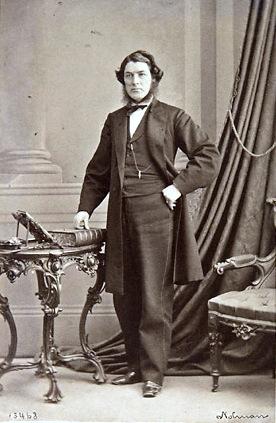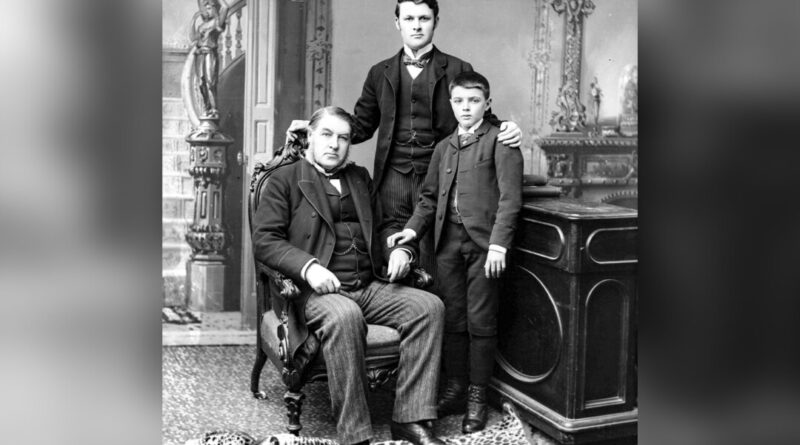From Country Doctor to Prime Minister: The Remarkable Journey
Commentary
After the Stewart-Howe debate, which took place over two days, Tupper, then 23 years old, was called out “to see a man threatened with tetanus,” also known as “lockjaw,” a severe disease of the nervous system caused by bacterial infection. Dr. Tupper rode 30 kilometres on horseback to see the sick man. Taking the bedside manner quite literally, he stayed by his patient all night, returning home on horseback the next day.
But Frances Tupper had already answered by messenger that her husband would attend as soon as he got home. Tupper promised Townshend that he “would go and return without stopping.”
Tupper set out “as soon as a fresh horse was harnessed.” He saw Colonel Armstrong, prescribed medicine, and immediately got back on his wagon and “turned my face homewards.” Stopping only to eat and barely able to keep awake at the reins, he got within 30 kilometres of home when another patient at Maccan, 15 kilometres south of Amherst, needed him. Arriving at the patient’s house, Tupper asked for tea to keep him awake. But while waiting for the kettle to boil he fell asleep in a chair and could not be awakened for four hours.
On another occasion he rode out 40 kilometres to attend to a Mrs. Livingston. The case was bad, and he took with him “amputating instruments” which meant a set of saws, knives, vise-grip, and choppers to remove a limb but no modern anesthesia (pioneered in England and America in the 1840s) or modern antiseptic (pioneered by Joseph Lister in 1867, the year of Confederation).

Sir Charles Tupper in 1865. Public Domain
The woman had “osteosarcoma of the femur,” Tupper later wrote, a large cancerous growth in the upper leg. She had shrunk to a skeletal figure, was in great pain, and had not slept for six weeks. When Tupper told Mrs. Livingston that he would have to amputate at the hip and that she might die during the operation, she said she would be better off either way: “If I was sure I could not live through the operation I would beg you to take my leg off.”
He asked a new doctor in Pugwash, eight kilometres away, to assist him in the operation the following morning. Tupper also enlisted a sailor (the profession most experienced in tying knots) and showed him “how to ligature an artery.” The initial cuts being made to the flesh and arteries, the younger doctor “compressed the femoral artery” while Tupper “made the anterior flap,” which meant using part of the gluteus maximus and skin to cover the area.
The old salt seems to have stood up well, but the less experienced doctor became faint and stopped compressing the artery—a most dangerous situation which Tupper corrected by putting his own thumb on it, pushing aside and yelling at his young colleague, who came to his senses and reapplied pressure.
Tupper wrote: “I removed the limb as quickly as possible, picked up the arteries which the sailor ligatured, completed the operation, gave the patient a good dose of brandy and laudanum, after which she said she felt as if she was in heaven, and soon was asleep.”
He added that six weeks later Mrs. Livingston was able to take tea at a neighbour’s house. She “became stout” and four months later while happily weeding in her garden on a hot day, keeled over and died, Tupper says of “apoplexy.” (Today we would say it was a stroke, heart attack, or aneurysm.)
It had been another visit by Joseph Howe in 1851 that drew Tupper into politics.
Tupper introduced the Conservative. He spoke so well that the great Joseph Howe got up on stage. Tupper offered to yield the podium to the legendary assemblyman. Instead, Howe said, “Not at all, doctor; go on and make your speech.” When Tupper then urged the voters to choose DeWolf over Howe, the latter began heckling, “The candidate should be heard first.” But Howe was drowned out by Conservatives shouting, “Hear Dr. Tupper.”
The impression sank in that Howe was actually afraid of Tupper, and thus began the movement to draft him as a candidate. Tupper went on to defeat Howe in 1855 for the Cumberland seat.
Religion was an important factor, as Tupper, whose father, Charles, was a prominent Baptist minister and Biblical scholar, shared the Baptist tradition of the Tory leader, Johnston, though Tupper and his family became Anglicans.
Views expressed in this article are opinions of the author and do not necessarily reflect the views of The Epoch Times.



